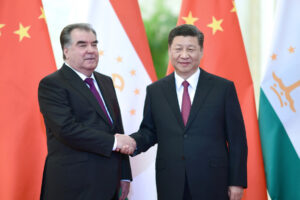Namibia will not be affected by the ongoing 2023 global recession caused by simultaneous rate hikes by central banks across the world in response to inflation.
The economy of the country is, in fact, expected to grow in the region of three percent, only one percent shy of last year’s 4.6 percent.
According to a comprehensive new study by the World Bank, the world may be edging toward a global recession in 2023 and a string of financial crises in emerging markets and developing economies that would cause them lasting harm.
Economist, Ruusa Nandago explained that recession by definition is a prolonged contraction in economic activity and it is her view that Namibia is not at risk of recession based on the high-frequency indicators such as tourist activity, beverage manufacturing, electricity sales, livestock marketing, mining activity and transport activity which are currently positive.
While a recession is not expected, slower economic activity is expected compared to last year. This is due to weak economic growth of trading partners and the impact of elevated prices and interest rates on consumers and the possibility of dry weather conditions negatively impacting agriculture and water-related industries.
In terms of interest rates, she stated that the elevated interest rate environment will certainly put individuals in a tight financial position.
While individuals cannot completely avoid the impact of higher interest rates, they can manage them to a certain extent by re-evaluating downscaling and downgrading especially on luxuries, clearly differentiating between needs and wants and looking out for savings,Nandago stressed.
Additionally, Inflation has been predominantly driven by fuel and food which she says, limits the extent to which the central bank can bring inflation under control.
However, she noted that there has been good work done to mitigate the second rounds of inflation based on the core inflation figure.
“The Bank of Namibia has done its best to give Namibians relief by deviating from the SARB twice. With the current differential between the two countries at 50bps,” she said.
She highlighted that the central bank has been slightly less aggressive with its rate hikes which in her view is a welcome attempt at trying to balance between offering individual relief and still carrying out its mandate of maintaining a one-to-one peg.
Meanwhile, Josef Sheehama an Independent Economist and Business Researcher says the increasing global food and fuel prices have sent inflation rates over the Bank of Namibia’s inflation target band to 7.2 percent in March 2023 but eased to 6.1 percent in April 2023.
“I don’t see Namibia’s economy facing recession times in 2023 as our economy has gradually improved to weather the storm and continue to grow,” he said.
He, however, foresees that major commodity imports will face challenging market conditions amid a global economic slowdown, but the outlook is far from gloomy as export prices remain reasonably fair.
“We expect Namibia’s economy to continue to grow, although real GDP growth rates will vary considerably and teeter on the brink of recession. Despite, improvements in Namibia’s economy we cannot totally overrule the imminent recession. Even if the world manages to avoid a recession in 2023, a sharp economic slowdown will hurt millions of working people globally,” Sheehama said.
Namibian consumers are under a lot of financial strain. In a society with very high unemployment and where incomes are distributed widely among families and kin, every lost job has huge ramifications.
Namibia’s current inflation stands at 6.1 percent. The rising interest rates could knock the economy into a recession, making the cost of living even higher and spiking the unemployment rate.
“I am talking here about people in genuine distress, who do not have the money to pay their loan instalments. It is unclear how long the cost-of-living crisis will last. It may be heresy to those who think the Bank of Namibia is all-powerful, but the honest answer is that raising interest rates wouldn’t put out the fire. Short of throwing thousands of people out of work in a depression, higher rates wouldn’t bring supply and demand back into balance, a necessary condition for price stability, simply because the spike in inflation is not a result of excess liquidity but is imported. It is entirely external”, explained the Economist.
It inevitably also means that operational costs go up, coupled with the fact that potential customers now have less discretionary income, and one may see their profits go down. When labour wages can’t keep up with the rate of retail prices, inflation, the purchasing power of those wages, decreases.
Low-income families face it like nobody else; for them any price increase, regardless of how small or big has serious consequences.
The recent tightening of monetary and fiscal policies will likely prove helpful in reducing inflation.
Policymakers should cooperate to alleviate global supply bottlenecks.
To this end, he is of the opinion that it should support rules-based international economic order, one that guards against the threat of protectionism and fragmentation that could further disrupt trade networks.
Therefore, higher interest rates raise the cost of borrowing money and will slow down the economy with businesses and households feeling the pinch. The use of interest rates as a liquidity tool to solve the inflation problem has proven itself totally ineffective and instead, could trigger a recession.
Central banks around the world have been raising interest rates this year with a degree of synchronicity not seen over the past five decades, a trend that is likely to continue well into next year, according to the report.
Yet the currently expected trajectory of interest rate increases and other policy actions may not be sufficient to bring global inflation back down to levels seen before the global Covid pandemic.
Source: Observer24
















